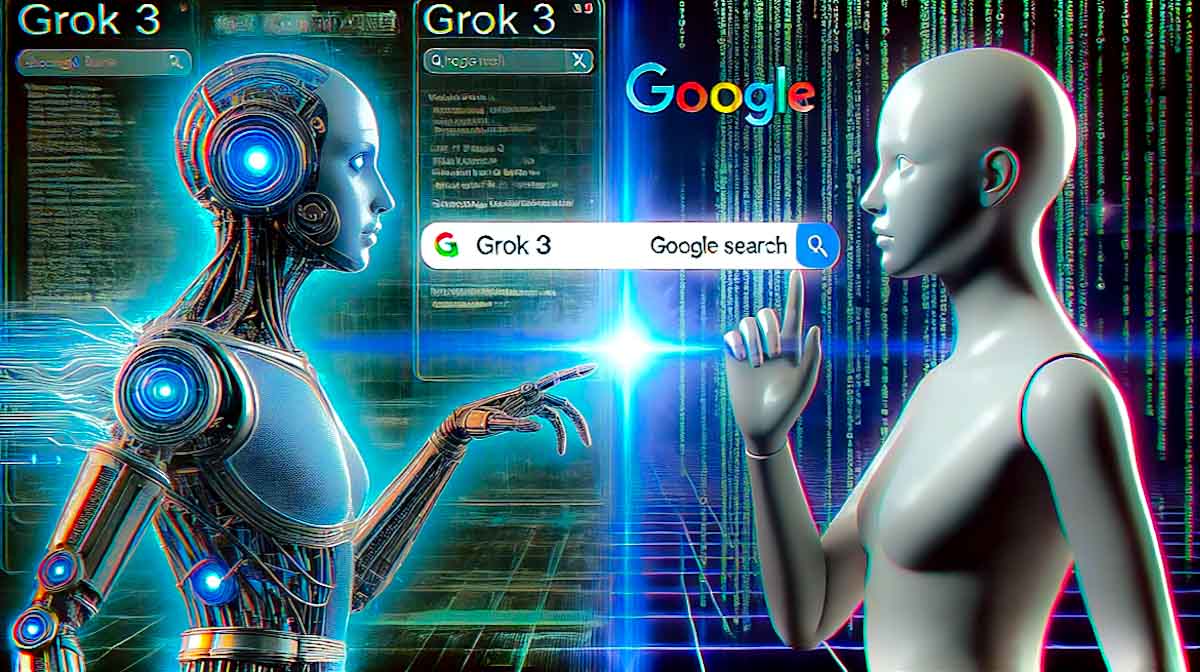The landscape of online search is evolving rapidly, with AI-driven tools becoming increasingly sophisticated. Elon Musk’s xAI has introduced Grok 3, a powerful AI chatbot designed to process and deliver information conversationally. With its advanced reasoning capabilities and real-time data access, many speculate whether Grok 3 can replace Google Search as the go-to platform for information retrieval.
In this article, we will compare Grok 3 and Google Search in detail, analyzing their strengths, weaknesses, and the likelihood of Grok 3 overtaking Google’s dominance in the search market.
Understanding Grok 3
Grok 3 is the latest iteration of xAI’s AI chatbot, designed to provide conversational, context-rich responses. It offers several groundbreaking features:
- Multimodal Capabilities – Unlike traditional search engines, Grok 3 can generate text and images in response to queries.
- Advanced Reasoning Modes – It features three distinct modes:
- Think Mode – Breaks down complex problems into logical steps.
- Big Brain Mode – Uses a high-powered model to provide deep, nuanced insights.
- DeepSearch Mode – Retrieves real-time information from the internet.
- Enhanced Computational Power – Trained on a supercomputer cluster called Colossus, powered by over 200,000 GPUs, making it significantly more capable than its predecessors.
Grok 3 is designed not just to retrieve information but to synthesize and present it in a conversational, user-friendly manner.
How Google Search Works
Google Search has been the undisputed leader in web-based information retrieval for decades. It operates through:
- Indexing & Ranking – Google constantly crawls and indexes billions of web pages, ranking them based on relevance, credibility, and user engagement.
- Algorithm-Driven Results – The search engine relies on complex AI and machine learning algorithms to deliver the most relevant results.
- Featured Snippets & AI Summaries – Google has incorporated AI-powered overviews to provide quick answers directly on the search results page.
- SEO Optimization – Websites can optimize their content to appear higher in search results, making Google an essential tool for businesses.
Despite AI advancements, Google remains largely link-driven, meaning users must click through multiple sources to find the information they need.
Feature Comparison: Grok 3 vs. Google Search
| Feature | Google Search | Grok 3 |
|---|---|---|
| Data Source | Indexed web pages | Real-time internet search |
| Response Style | Lists links and snippets | Conversational, AI-generated responses |
| Real-Time Updates | Delayed, based on index crawling | Live data retrieval using DeepSearch |
| Multimodal Output | Text-based only | Text & AI-generated images |
| Interactivity | Limited, requires user refinement | Engages in back-and-forth conversation |
| Customization | Users refine searches manually | AI adapts responses based on user input |
| Cost & Accessibility | Free for all users | Currently available to Premium+ subscribers on X |
The Future of Information Retrieval: AI vs. Traditional Search
While Grok 3 is a revolutionary AI model, there are several factors that determine whether it can truly replace Google Search:
1. Accuracy & Reliability
Google Search relies on credible indexed sources, ensuring reliability. Grok 3, on the other hand, generates responses based on training data and real-time searches, which may introduce misinformation if not properly fact-checked.
2. Accessibility & Business Model
Google Search is free and universally available, whereas Grok 3 currently operates on a subscription model, limiting its accessibility.
3. User Behavior & Adoption
Most users are accustomed to Google’s search mechanics. Shifting to an AI-driven model requires behavioral change, which takes time and trust.
4. SEO & Digital Marketing Implications
Businesses rely on Google’s search traffic for visibility. If AI-driven models like Grok 3 gain traction, it could disrupt the entire digital marketing industry.
Can Grok 3 Replace Google Search?
Grok 3 introduces a game-changing approach to online search by integrating AI-powered conversation, real-time information retrieval, and multimodal content creation. However, replacing Google entirely is unlikely in the near future due to Google’s vast infrastructure, credibility, and user adoption.
Instead of outright replacing Google Search, Grok 3 could serve as a complementary tool, excelling in conversational queries, complex reasoning, and real-time data access, while Google remains the dominant web indexing and information retrieval platform.
As AI technology advances, we might see a hybrid approach where AI-powered models like Grok 3 integrate seamlessly with traditional search engines, enhancing the way we access and interact with information.
